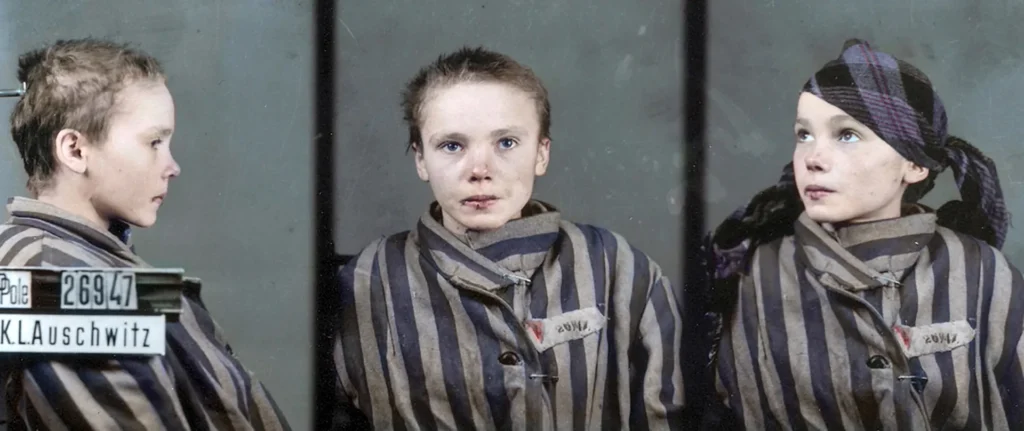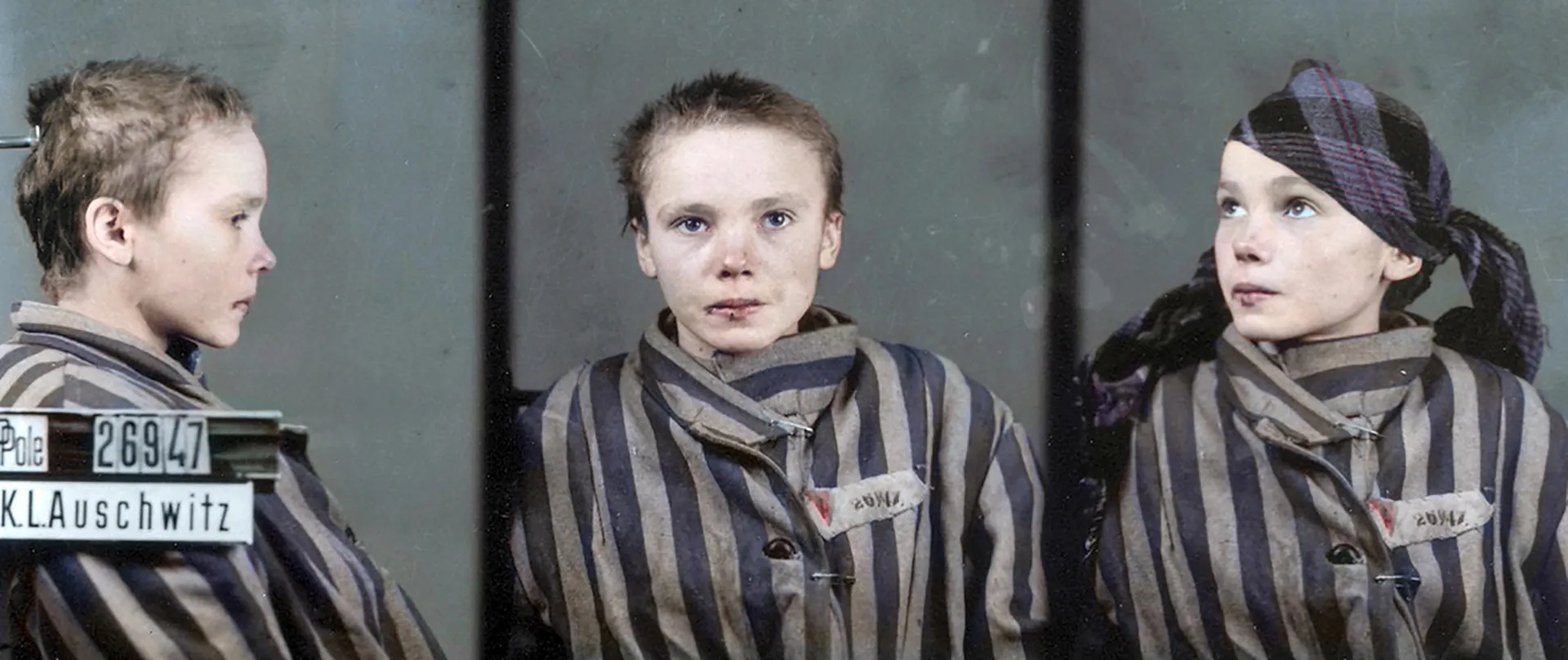
Credit: Auschwitz-Birkenau Memorial and Museum.
By Pawel Bolek. Managing Editor.
A post showing Czesława Kwoka, a 14-year-old Polish Catholic girl murdered at the Auschwitz-Birkenau extermination camp with an injection of phenol into her heart, has recently gone viral on X (formerly Twitter). Beneath it, a viral response: “You guys don’t have a copyright on pain,” writes user @MycoPhiloFella. “And history as it’s been told isn’t quite as accurate as the holocaust lobby would have you believe.”
Perhaps it’s my own personal bias—as a volunteer at the Auschwitz-Birkenau Memorial and Museum—but it seems that Holocaust, World War II, and Nazi discourse has once again entered the mainstream. And for good reason: it was just last month that approximately fifty survivors (and another fifty prominent heads of state, including King Charles III and Emmanuel Macron) came to Oświęcim, Poland to commemorate the 80th Anniversary of the Liberation of the Auschwitz-Birkenau Extermination Camp. Built by German Nazis on occupied Polish soil during World War II, the camp stands as a reminder for future generations of what human beings are capable of doing to one another.
My hometown in Poland is a mere 15 minute drive from this symbol of the Holocaust, the event that led to the extermination of over six million Jews, alongside millions of Slavs, Romani, homosexuals, and other minorities deemed not worthy of life by Nazi Germany. Growing up, my mother tried to shield me even though the camp’s presence loomed over her life—and ours. She went to secondary school just across from the camp’s main entrance, where she met Holocaust survivors who visited in the late ’90s. Her stories and this deep, living connection to history led me to spend a summer volunteering at what is now the Auschwitz-Birkenau State Memorial and Museum—an experience that culminated in the profound honor of assisting at the 80th Anniversary commemoration on January 27.
As solemn as previous commemorations have been, this one felt different. More urgent. More immediate. Though heads of state nearly outnumbered the survivors in attendance, none were permitted to speak. The focus remained solely on the few who lived through hell on earth. They spoke of rising antisemitism and the resurgence of ethnic, religious, and sexual-orientation discrimination. Their words carried unease, disbelief, and, most of all, fear. As survivor Marian Turski put it, “I never thought I would see this happen again in my lifetime. And yet, here we are.”
It is hard to blame them for not telling a story of joy and triumph over evil. Alas, this renewed Holocaust discourse is not merely about remembrance. It is also about a resurgence of old hatreds, repackaged for a new era. At Donald Trump’s inauguration, we witnessed Elon Musk—owner of X—echo the body language of far-right groups. A mere week before the Auschwitz commemorations, Musk’s gesture, closely resembling a Nazi salute, could not have come at a more inappropriate time. With no official apology, it’s hard to shake the feeling that, just a few years ago, a similar gesture performed by a high-profile businessman or politician could have ended their career for good. This attitude is all the more puzzling when accounting for Musk’s visit to Auschwitz in January 2024 and his apology for endorsing antisemitic sentiments on X in 2023.
On a related note, Kanye West (also known as Ye) recently published a lengthy series of tweets, casually declaring his admiration for Adolf Hitler, writing, “I LOVE HITLER” and, “I’M A NAZI” among others. Immediately, users started betting whether he would be banned from the platform, which eventually occurred four days and dozens of tweets later.
Before his X ban, West removed his products from his online store and started selling a single t-shirt design featuring a swastika. It wasn’t until 48 hours after Ye’s Super Bowl ad, redirecting everyone to yeezy.com, that the site was shut down. While Ye’s penchant for the controversial means people tend not to take his tweets at face value, his inflammatory statements only serve to further normalize Nazi rhetoric in the mainstream. Even if Ye’s tirades, rants, and controversial actions aren’t completely sincere, the effects they have on the online environment are.
Both Musk and West are part of a broader trend seen in alt-right movements—an instrumentalization of Nazi ideology and symbolism as a sort of meme or edgy bait to “own” wokeists. And the current wave of anti-LGBTQ+, anti-immigrant, and nationalist rhetoric pushed by figures like Trump eerily mirrors the Nazi obsession with racial purity and social control.
When I volunteered at Auschwitz, I cried. Many times. I saw children’s drawings etched on walls. I listened to survivors who spoke of the impossible choices they had to make to survive. I witnessed pre-war footage of entire Jewish families, neighborhoods, and towns that didn’t survive the war. I walked past buildings and gas chambers whose walls witnessed the gruesome deaths of over 1.1 million people. And yet, in 2025, a billionaire tech mogul and a once-beloved artist have the nerve to casually echo the same rhetoric and symbolism that led to those very gas chambers—publicly, shamelessly, treating it as if it were a meme or inside joke.
There are fewer and fewer survivors left. Soon, there will be none. It will then be entirely up to us—those who are still here—to carry on their memory and ensure that “Never Again” is not just an empty promise, but a reality.
Other posts that may interest you:
Discover more from The Sundial Press
Subscribe to get the latest posts sent to your email.





